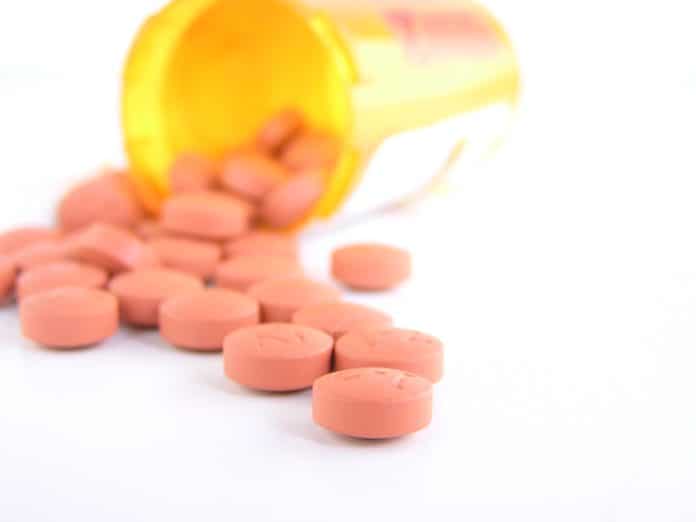Last Updated on March 21, 2023 by The Health Master
There is a fresh twist in the ranitidine saga as a new study from South Korea, published in the Nature journal, has delinked it from cancer in line with some other scientific evidence generated so far.
The latest study is based on an analysis of over 25,000 patients. The other half had taken a drug similar to ranitidine, and the other half had taken ranitidine for up to six years.
According to the study, neither the risk of developing major individual cancers nor the overall cancer risk were linked to ranitidine use. “The higher cumulative exposure to ranitidine did not increase cancer risk,” it said.
Ranitidine, a common medication used to treat peptic ulcer disease, gastroesophageal reflux disease, heartburn, and indigestion, was banned in several nations in 2019 after it was discovered to contain unacceptable levels of the carcinogen compound NDMA (N-Nitrosodimethylamine).
However, various brands of this molecule are allowed to be sold in the country even though it was dropped from the recently-released National List of Essential Medicines (NLEM).
The list contains drugs that are comparatively cost-effective and are aligned with current treatment guidelines.
There is a caveat, though. The report also stated that these results should be carefully interpreted due to the short follow-up period.
Ranitidine, manufactured by several major and small drug makers in India, has been in use for nearly 45 years.
Global concern
As a byproduct of manufacturing processes involving alkylamines, NDMA is a volatile chemical that belongs to the nitrosamine class of substances. It can end up in the air, water, and soil.
Smoke from cigarettes, food—especially nitrite-preserved foods like cured meats—and other household products can expose people to NDMA.
It can also form in the stomach endogenously during the digestion of alkylamine-containing foods at very low levels.
The carcinogenicity of NDMA in animals has long been known, and the International Agency for Research on Cancer (IARC) has classified it as a potential human carcinogen.
Senior pharmacologist Dr Santanu Tripathi pointed out that NDMA is formed in ranitidine Active Pharmaceutical Ingredient (API) because of an intermolecular degradation reaction between ranitidine molecules that occurs primarily in a solid state even though the exact reaction mechanism is unknown.
In 2019, after an alert by the US Food and Drug Administration (USFDA), drug regulators in some countries concluded that the ranitidine molecule itself was capable of generating NDMA while some others linked it to impurities in the API.
The USFDA, after finding that the NDMA levels in some ranitidine products increase with time and temperature and pose a risk to consumers, ordered the withdrawal of all ranitidine products from the US market.
Ranitidine in India
The molecule continues to be sold in India under the various brand names even though it was removed from the NLEM in September 2022.
Dr. Rajeev Jayadevan, a senior gastroenterologist and medical researcher from Kerala, made the observation that ranitidine is an affordable and efficient treatment for digestive issues of the stomach caused by acid.
According to him, the daily cost is less than one-fifth of the equivalent doses of proton pump inhibitors, which are currently widely used across the globe.
For a patient in India, it costs less than Rs 2 per day, according to Jayadevan, and the cost advantage of this medication should not be overlooked.
“Doctors working in general practice and in specialty gastroenterology practice, across India and elsewhere, have anecdotally reported only positive experiences with this drug, which, by the way, lacks the glitz and promotion of its more expensive alternatives,” he emphasized.
Jayadevan also emphasized that the issue, which was initially raised by the USFDA, has not been supported by any clinical observations.
“The cancer risk with this drug remains largely a theoretical concern, which has not been proven by any scientific studies,” he said.
Cancer in humans has not been reported conclusively so far during the past 45 years of use of ranitidine and the recent Korean study is further proof of its safety, said Jayadevan, adding that the concerns about ranitidine appear exaggerated at this time and lack any clinical or research evidence to substantiate the claims against it.
There is a worry, though
Tripathi, however, said that while the presence of NDMA and many of its related compounds—together called nitrosamines—has been a worry, its presence in some medicinal products and substances is a relatively recent phenomenon.
Sartan-Valsartan, a medication used to treat hypertension, was the catalyst, and a number of others followed, including but not limited to:
- Ranitidine,
- Metformin and
- Rifampicin.
As far as I’m aware, the statutory drug testing labs in India lack sophisticated analytical tools for finding nitrosamine impurities in drug samples, according to Tripathi.
We can only hope that the medical risks associated with nitrosamines will be addressed in a timely manner, according to Tripathi.
USFDA gives approval for Ranolazine ER tablets
Drug recall: Brimonidine Tartrate Ophthalmic Solution recalled due to this reason
Spurious drugs worth Rs 5 Lakh seized: UP
How to prepare SOPs in the Pharma Industry
NMC rejects proposal to allow Pharmacists to write Prescriptions
SC: Doctor can’t be punished under D&C Act for storing small quantities of medicines
Delhi High Court asks Centre to file status report on sale medicines online
Govt amends New Drugs and Clinical Trials Rules, 2019
Difference between branded and generic medicines
Understanding DQ, IQ, PQ, and OQ in the Pharma Industry








